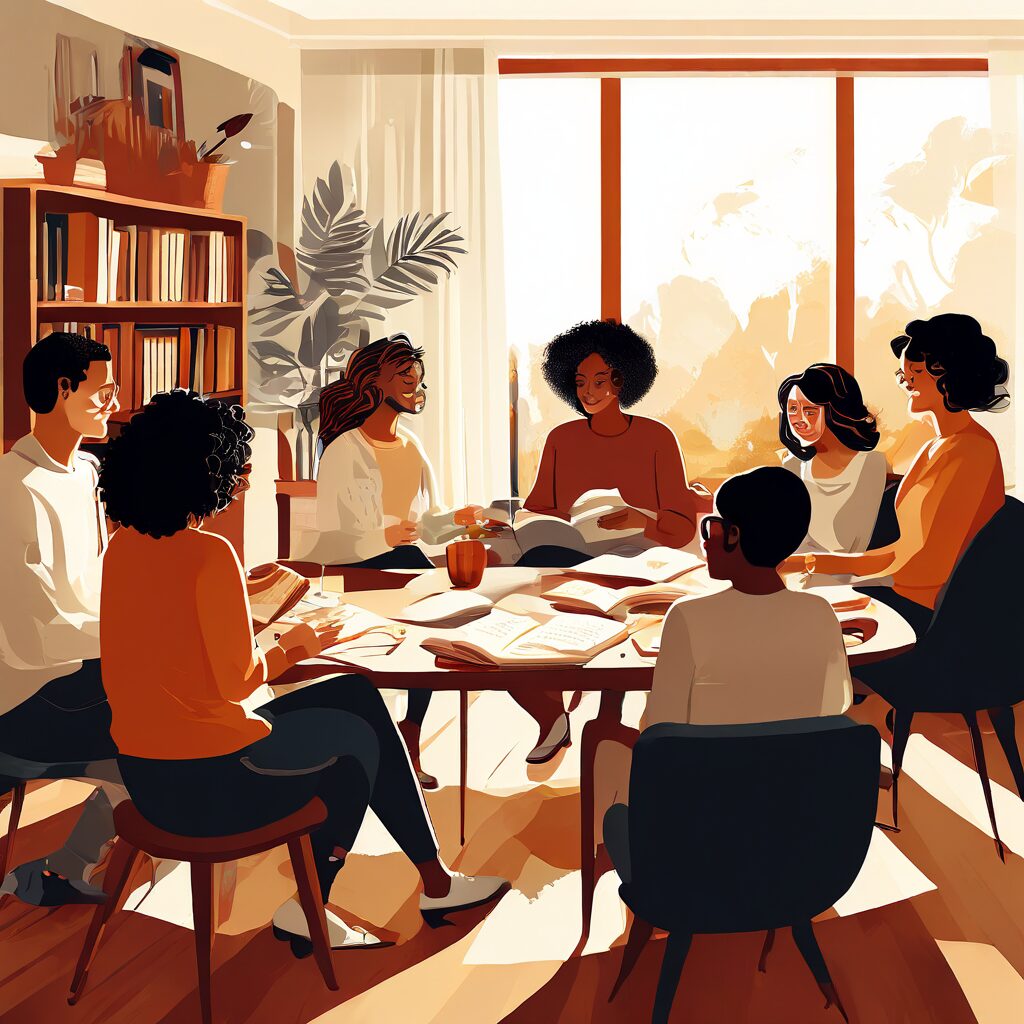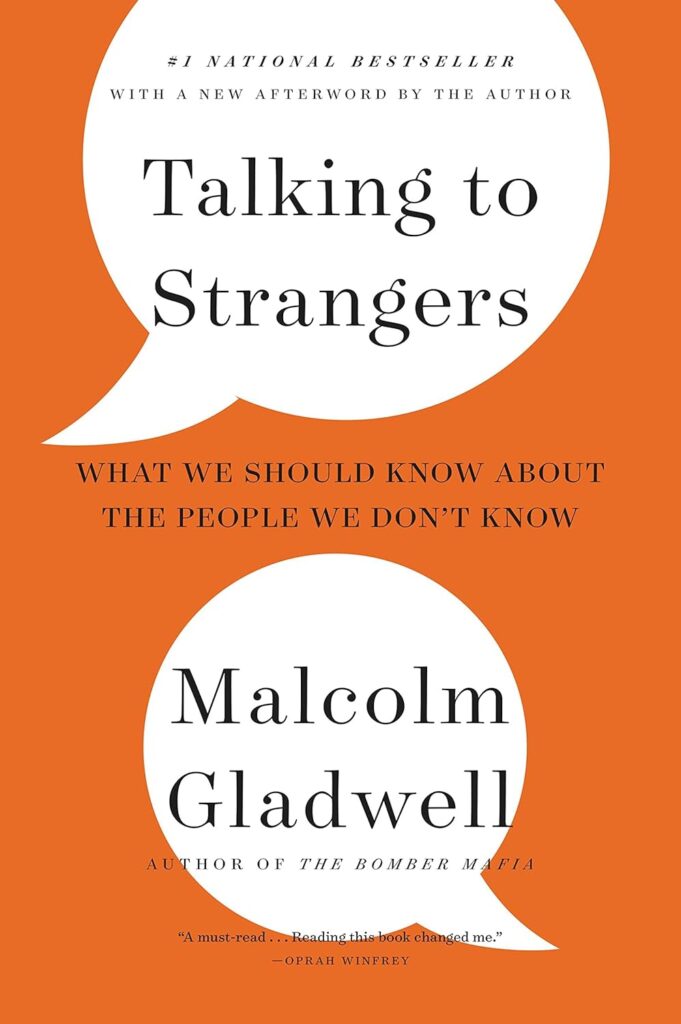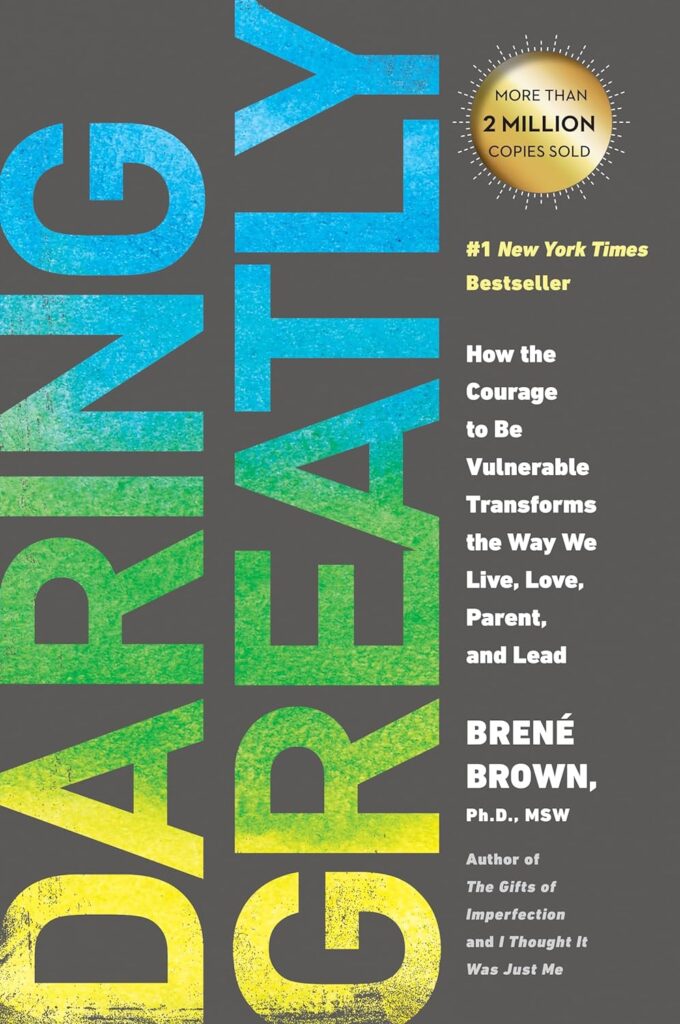Have you ever found yourself in a situation where you didn’t know how to act or what to say? We’ve all been there at least once, wishing we could disappear into thin air because we didn’t know what to do or say.
Social skills are a key aspect of personal development. Whether you want to excel at work, build deeper relationships, or simply feel more confident in social settings, developing these skills can bring you many benefits. And no, it’s not about becoming a master of small talk – although that can be useful too! It’s about feeling comfortable in any situation and being able to make real connections with people.
Learn how to easily and enjoyably improve your communication skills, taking another step towards your personal development.
What are Socializing Skills?
Social skills refer to the competencies necessary for interacting and communicating effectively with others. These include verbal and non-verbal communication, listening, empathy, and the ability to understand and manage one’s emotions.
Why Don’t We Have Them?
Lack of social skills often stems from various factors such as upbringing, personality, or simply a lack of practice. In today’s digital age, where face-to-face interactions are often replaced by screens, these skills can become rusty.
Why Do We Need Them?
Social skills are crucial for personal and professional success. They help us form meaningful relationships, work collaboratively, and navigate social networks. They are fundamental to our well-being and growth.

Why Socializing Skills Matter in Personal Growth?
Socializing skills are not just about making friends or fitting in. They enhance our ability to connect with others, leading to enriched experiences and opportunities. For example:
- Networking and effective communication can open doors to new job opportunities.
- Good social skills can lead to deeper and more satisfying relationships with friends and family.
Can You Learn Social Skills?
Absolutely! Everything can be learned. Social skills can be learned and honed over time with conscious effort and practice. Take the example:
Warren Buffett, who was once terrified of public speaking. He took a Dale Carnegie course and transformed himself into a confident communicator.
“The ability to communicate with people is the most important skill in life. With it, you can achieve anything you desire.”
Dale Carnegie
The Benefits of Having Good Social Skills:
- Improved Relationships: Better communication leads to stronger personal and professional relationships.
- Increased Confidence: Mastering social skills boosts self-esteem and confidence.
- Career Success: Good social skills are often linked to leadership and career advancement.
- Better Mental Health: Positive interactions can reduce stress and increase happiness.
10 Ways to Improve Your Social Skills
1. Understanding Yourself
Self-awareness is like figuring out the instruction manual for being you. Once you get a handle on your feelings and know what things can make you feel uncomfortable or stressed, you’ll be able to handle situations more smoothly.
Understanding yourself means recognizing your strengths, weaknesses, and the specific areas where you struggle socially. Are you shy in large groups? Do you find it hard to start conversations? Understanding these aspects can help you target your efforts more effectively.
So, take the time to understand yourself, recognize your triggers, and cultivate confidence and empathy. It’s not just about improving your social skills; it’s about building a stronger, more authentic version of yourself.
2. Overcoming Fear and Anxiety
Fear and anxiety can be major obstacles to socializing. Learning to manage these feelings can help you become more comfortable in social situations. How to do this:
- Positive Self-Talk: Replace negative thoughts with positive affirmations. Instead of thinking, “I’m terrible at this,” try, “I’m learning and improving every day.”
- Exposure Therapy: Gradually expose yourself to social situations that make you anxious. Start with small, less intimidating interactions and work your way up.
- Relaxation Techniques: Practice deep breathing, progressive muscle relaxation, or mindfulness meditation to calm your nerves before social events.
Growth happens outside your comfort zone.
3. Practice Active Listening
Active listening involves fully engaging with the speaker and showing genuine interest in what they are saying. It is a crucial skill for building strong connections. Try this:
- Maintain eye contact to show you’re paying attention.
- Open-ended questions encourage more detailed responses and keep the conversation flowing.
- Use small gestures like nodding and saying “I see” or “Interesting” to encourage the speaker.
- Reflect on what you heard in your own words. For example, “So you’re saying that you enjoy hiking because it helps you relax?”

4. Improve Your Communication Skills
- Clarity and Brevity: Practice being clear and concise in your speech. Avoid jargon and complicated language.
- Non-Verbal Cues: Pay attention to your body language, facial expressions, and tone of voice. These can significantly impact how your message is received.
- Practice Small Talk: Start with simple topics like the weather, recent news, or a shared experience.
- Storytelling: Use stories to make your point more engaging and relatable. People remember stories better than abstract concepts.
5. Practice Empathy
Empathy involves understanding and sharing the feelings of others. It is a powerful tool for building trust and rapport. Listen not just to the words but also to the emotions behind them. When someone is upset, offer a listening ear and comforting words: “That sounds really tough” or “I can see why you feel that way.”
6. Use Positive Body Language
Your body language can communicate confidence and openness, even when not speaking.
- Make eye contact, and smile
- Stand up straight
- Open Posture – keep your arms uncrossed and shoulders relaxed
- Gestures, but avoid excessive or distracting movements
Think of how Dwayne “The Rock” Johnson always exudes confidence and warmth, making people feel at ease around him.

7. Join Social Groups or Clubs
Find groups or clubs that match your interests. Whether it’s a book club, a sports team, or a cooking class, these settings provide natural opportunities to meet new people and practice your social skills. Plus, you’ll already have a common interest to talk about!
8. Find Common Interests
Finding common interests is one of the most effective ways to build rapport and foster meaningful connections with others. Shared interests create a sense of camaraderie and provide a foundation for engaging and enjoyable conversations.
- Ask Questions: Inquire about the other person’s hobbies, interests, or favorite activities.
- Shared Activities: Suggest activities or topics that you both enjoy. This can create a sense of camaraderie and make conversations more engaging.
- Be Genuine: Share your interests and see if there is a mutual interest to build upon.
Additional Tips for Finding Common Interests
- Join clubs, groups, or events that align with your interests. These settings provide natural opportunities to meet like-minded individuals.
- Keep an open mind and be curious about other people’s passions. Sometimes, you might discover a new interest or hobby that you can share with others.
9. Be Yourself – Authenticity Matters
Authenticity is key to forming genuine and lasting connections. People appreciate when you are true to yourself.
- Honesty: Be honest about your thoughts, feelings, and interests. Don’t pretend to be someone you’re not.
- Vulnerability: Show vulnerability by sharing your own experiences and emotions. This can make you more relatable.
- Consistency: Be consistent in your words and actions. Authenticity builds trust over time.
10. Putting it into Practice
Theory is important, but practice is what makes the difference. Start small and gradually take on more challenging social interactions. After social interactions, take a moment to reflect on what went well and what could be improved. Did you listen actively? Were you able to keep the conversation going? Use these reflections to improve your social skills continuously.
By incorporating these tips into your daily life, you’ll find that socializing becomes more natural and enjoyable. So go out there, embrace the world, and let your social skills shine!
Helpful books that can help you learn social skills:
- “How to Win Friends and Influence People” by Dale Carnegie

This classic book offers practical advice on building relationships and positively influencing others. Its techniques are easy to apply and effective in any social situation.
- “The Charisma Myth” by Olivia Fox Cabane

The book explains how anyone can develop charisma through practical exercises and techniques. It combines elements of psychology and practical advice, making it a comprehensive guide.
- “Emotional Intelligence 2.0” by Travis Bradberry and Jean Greaves

Focuses on developing emotional intelligence, a crucial skill in social interactions. The book includes tests and strategies to improve self-awareness, self-management, and relationships with others.
- “Talking to Strangers: What We Should Know about the People We Don’t Know” by Malcolm Gladwell

Gladwell analyzes why we often misunderstand people we don’t know and how we can improve our communication skills. The book combines scientific research with fascinating stories, making it both informative and engaging.
- “Social Intelligence: The New Science of Human Relationships” by Daniel Goleman

Goleman explores how our brains are designed for social interactions and how we can improve our social skills. The book combines science with practical advice, making it a valuable resource on human relationships.
- “Daring Greatly: How the Courage to Be Vulnerable Transforms the Way We Live, Love, Parent, and Lead” by Brené Brown

Brené Brown shows how openness to vulnerability can lead to stronger, more authentic relationships. The book inspires readers to live boldly and build deeper connections.
Conclusion
Improving your socializing skills is a journey, not a destination. Start small, be patient with yourself, and celebrate your progress along the way. Remember, the key to becoming a social butterfly lies in understanding yourself, overcoming your fears, and genuinely connecting with others.
Simple Exercises for Every Day
- Daily Compliments: Give at least one compliment a day to someone you interact with.
- Conversation Starters: Practice initiating conversations with strangers in safe environments like cafes or bookshops.
- Role-Playing: Rehearse social scenarios with a friend or family member to build confidence.

Leave a Reply